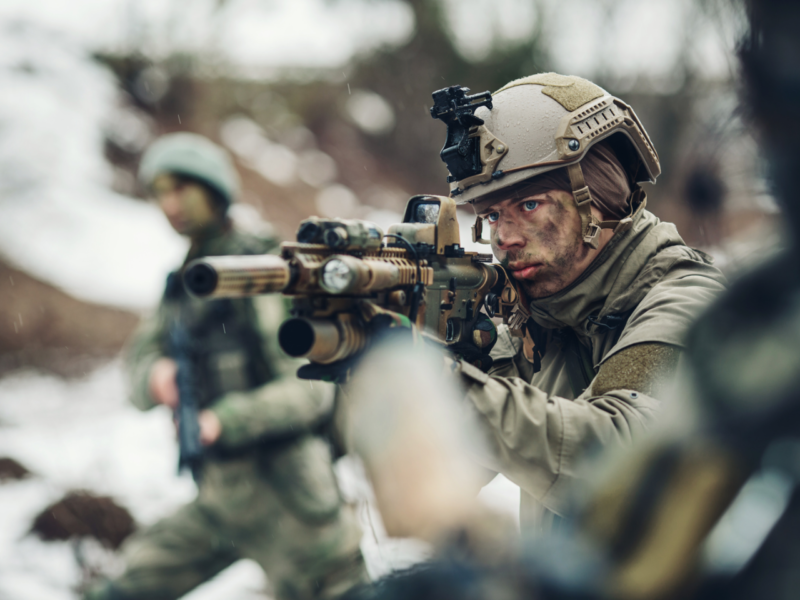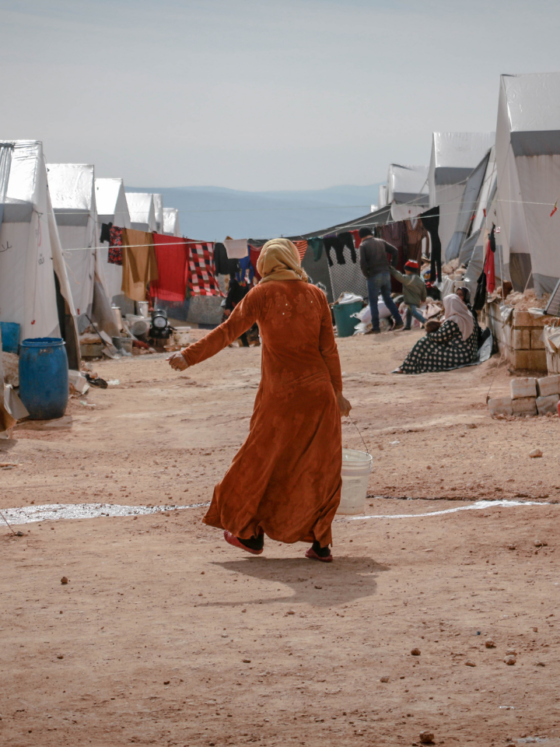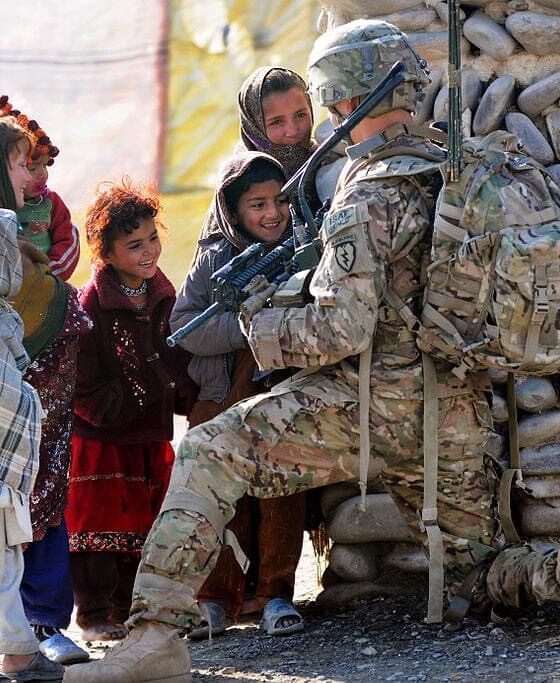This blog post comes in response to readers request for explanation on the Russian-Ukraine conflict. As the talk of war flashes across television screens, darkens the doorsteps of those in service, and is cause for concern for the United States, all of Europe, and the world as a whole, may this post help readers to gain a better basic understanding of a conflict rooted in politics, history, and ideological differences.
War as Policy Explained
Diplomacy, foreign aid, sanctions, deterrence, and use of military force are all tools a state can use to achieve its foreign policy objectives. Each of the methods listed is an instrument for a state to achieve an established goal.
For good definitions on each of the methods, see below for the Borgen Project.
War is an instrument of policy – and one that can be highly effective. It’s the method or series of methods employed by a country or leader to achieve a political objective. It is how a country can achieve its end goal. The purpose for which use of force is intended will shape the course, character, tactical approach, and spread of war.
War can be practical and effective as a means of policy when used to achieve an end result, but without a policy objective war becomes pointless, costly, and devoid of sense. In order for war to be rational, it must serve an end objective.
Countries can go to war for many reasons. These reasons include but are not limited to ideological changes, economic or territorial gain, religion, nationalism, civil discourse, revenge, and defence.
Ultimately the peace and prosperity of a nation is unattainable until it’s security is established. A nation, it’s traditions, freedoms, and identity are truly only secure when a nation has the ability to protect itself.
To learn more about the basics of foreign policy, click Foreign Policy
What is the conflict between Ukraine and Russia?
Here’s the most bastardized version of the Russia Ukraine conflict in an effort to break down what you see on the news. I’m breaking it down like I would for a friend over coffee – overly simplified. Many sites, including NPR, BBC, and PBS do a good job of explaining the current situation, but if you lack historical context, or time to read 20 different articles and jigsaw the bigger picture together, understanding the conflict can be a bit confusing. Sourced below are a few good places to get more information.
UKRAINE’S SIDE OF THE CONFLICT
Ukraine wants to join NATO – the North Atlantic Treaty Organization. NATO is an international political and military organization of several countries with the aim of guaranteeing the freedom and security of its members through political and military means. Members include the US, Canada, the UK, and most of Europe.
Basically it’s a gang of countries bonded by shared beliefs that have each other’s back.
By joining NATO, Ukraine secures its right to self-determination. It secures itself against Russian invasion, incursion, and influence, and legitimizes itself as an independent democratic nation.
Ukraine wants to join because the country then has the political and military backing of 30 other countries. This would help to guarantee them an autonomous future as a country, able to maintain their independence and dictate their own foreign policy. Basically, if you mess with one NATO country, you have messed with them all.
Ukraine is not currently a NATO member because they do not meet membership requirements – primarily being that to join you can’t be in a current conflict, which of course they are…with Russia.
RUSSIA’S SIDE OF THE CONFLICT
Putin doesn’t want Ukraine to join NATO.
Reason One – Security:
Russia’s foreign policy is guided by three objectives. Chief amongst their objectives is security, which is given primacy above all other social and economic factors. I.e – Russia really wants to secure its foothold.
Russia’s leader sees Ukraine joining NATO as the west encroaching on Russia’s doorstep. If the west borders Russia, the west has more power in the region.
Reason Two – Influence:
Second to security, Russia wants to be seen as a global power.
President Putin see’s Ukraine as part of ‘historical Russia’ and the former Soviet Union. I.e. Russia believes it has a right to influence in the Ukrainian region because of where it’s located. Having influence over Ukraine legitimizes Russia’s status as a global power while keeping distance between the west and its region of influence.
Reason Three – Territorial Integrity:
Russia has no distinguishing landscapes that help to identify and maintain the borders between Russia and Ukraine. The lack of distinguishing landmasses between Ukraine and Russia would make it easy for Ukraine, backed by the west, to push into Russia, should Ukraine join NATO and choose to do so. (Doing so would however go against the UN Charter.) If Ukraine joined NATO, Russia would have to increase military spending on security to hold the ambiguous border. This would be expensive for Russia, both economically and militarily.
For example: Switzerland has clear borders created by their mountainous landscape. The mountains create not only a boundary, but the country can easily defend its borders because there are only a few easy points of entry because the country is surrounded by mountains. The space between Russia and Ukraine does not have this.
TIMING IS CRITICAL
Ukraine has an emerging free market economy which, minus a few setbacks, has been growing since the year 2000. Currently, Kyiv is stocking up on weapons to defend itself, with the help of the United States and the United Kingdom. These weapons include anti-tank missiles and ammunition. Additionally, Ukraine is set to begin producing Turkish combat drones, and is eager to develop a missile program of its own.
This combination means that Ukraine has established the power to begin defending itself against Russian invasion, incursion, and influence.
Independently, any one of these things could threaten the Russian heartland.
As the economy continues to improve, as weapons are produced and programs developed, Ukraine will only grow in strength. The proliferation of weapons makes the invasion of Ukraine exceedingly costly, monetarily and militarily. It is unlikely that there will be any time in the near future where Ukraine will be easier or cheaper for Russia to strike than right now.
How does this involve the United States?
The United States is part of NATO. It is the largest and most powerful country in the organization militarily and economically. While each country plays a critical role in the organization, the United States plays an important role in legitimizing the cooperative efforts, and upholding the values of NATO, the United Nations charter, and the international principles that Russia is challenging.
According to the United Nations Charter, the right to self-determination is an inalienable right. By virtue of that right people and countries can freely determine their political status and freely pursue their economic, social and cultural development. Russia is a United Nations member, but is conveniently ignoring this part of the charter as it throws its weight around with Ukraine. This isn’t just a theoretical issue – Crimea is an example of seized territory that did in fact violate this international principle with Ukraine.
Though Ukraine is not a NATO member, the right to territorial integrity transcends a country’s borders, alliances, or geographical location. Russia’s threats of further force against Ukraine threatens the common principles that govern the sovereignty of international communities as a whole. It challenges not only Ukraines autonomy, but NATO’s legitimacy, and democracy as a whole.
To put it bluntly, Uncle Sam getting involved makes other power countries think twice about whether or not they want to bully smaller countries. Should we be the global police? No. Do we hold the line of democracy for other countries? Yes. That means something to countries that want to enjoy the same freedoms we do, who may otherwise not be able to achieve freedom and democracy alone…and it has a measurable impact on migration, which is super (super) important. Queue another blog.
Additionally, if conflict turns into a firefight in Ukraine, the conflict is right on Europe’s doorstep. That can become expensive and dangerous, both physically and economically, for Europe and many of its NATO members, and all of the country’s citizens. It’s just too close for comfort, and could quickly turn into a conflict that spreads. A war spreading across Europe would be felt throughout the western world as troops would be mobilized and the economy impacted. Truly, if that happens, this would be felt across the entire globe. Experts say the damage would be something we haven’t seen since WWII.
What is at risk?
Each one of these bullet points could be its very own blog, so in the spirit of baseline knowledge, I am going to try to keep this section brief.
SOCIAL ISSUES:
War destroys communities and families. Forced migration is the bi-product of sudden, life-threatening events such as war and regional instability, which can lead to statelessness, homelessness, poverty, reduction in education, reduction in traded commodities, goods, and services, and can cause unemployment. Migrants can affect host communities by leading to price increases across the market, as well as housing and resource shortages. It leads to physical and psychological harm to both children and adults, and has a measurable impact on human rights and human trafficking. The most threatening consequences of war include death, injury, sexual violence, malnutrition, illness and disability. Depression, anxiety, and PTSD are amongst the most common psychological outcomes.
ECONOMIC ISSUES:
Aside from the very real cost to human life, war comes at a serious economic cost. When money is allocated to military spending, it often draws from other places in need of financial support. Loss of buildings, and infrastructure are likely to occur. There can be a decline in the working and tax paying population. There is often a rise in debt and there is disruption to normal economic activity such as trade. Social issues can create a slew of economic issues, and inevitably, the price of war will be felt in the prices we pay for goods and services.
POLITICAL ISSUES:
War can affect the stability of governments and the confidence individuals put in their leadership. Political, economic, and social agendas may shift as a result of war.
ENVIRONMENTAL:
Until recent years the effects of war on land and sea have not been closely researched or considered, but new studies are showing that it is not just land that affects war, but war that affects land. Mining, logging, and large scale destruction of entire ecosystems in short amounts of time have a wide breadth of effects on water security, food security, stability of local species, and future usability and habitability of destroyed lands.
Why should you care?
The threat you see on the news is real in both political and geographical terms, as well as timing. Not only would this have an immediate and measurable impact on the social, economic, and political infrastructures of Ukraine, and very likely across Europe, but this will also have a measurable impact on stateside Americans. It is likely that this would be felt every time you pay at the pump, and reflected in the prices of commodities. It is also likely that the need for intervention in foreign spaces and for foreign persons, be it by refuge or remediation, would be necessary.
And shamelessly, you should care because the people holding the line of democracy are your compatriots. They serve you, and they hold the line between humans’ inalienable right to self-determination, and those who would strip people of their God-given rights.
What can you do?
When I was growing up, I didn’t know a single service member, past or present. That gave me the false notion that there was a big gap between the line of freedom, and myself. Trust me, from wherever you sit, you are closer to the fight than you probably realize.
Here’s what you can do to help:
Bring awareness to what’s going on. A nation unified in its stance on foreign affairs is actually really intimidating to those who would oppose the nation. A nation backed by its people is a threat.
When you vote, you can vote for leadership that understands the cost of our global participation, and takes that responsibility seriously. Seriously, we need to stop voting like our internal agenda is the only thing that impacts the American public. Gas prices in the face of this conflict are likely about to prove this.
You can engage trusted news sources for the most up-to-date information. Don’t just go believing all that is sensational and inflammatory. It’s damaging.
You can find organizations whose values align with yours and support them. Maybe you care about service member organizations, or you care to help those directly affected by war. If you do, get ready to support their efforts by putting your money and time where your values are.
You can fly your flags high.
And when you hear the drums of war ringing in your ears, remember that those are the heartbeats of the men and women who have been called to protect freedom, at home and abroad. When you think of war, you don’t simply say “our troops.” You call our people by name – if you can’t think of a name, I happily volunteer my family to your inner-circle.
It will remind you how close you actually are to the fight.
Your Partner in Policy,
Taylor Patrice









